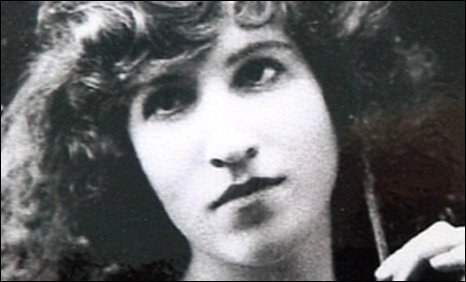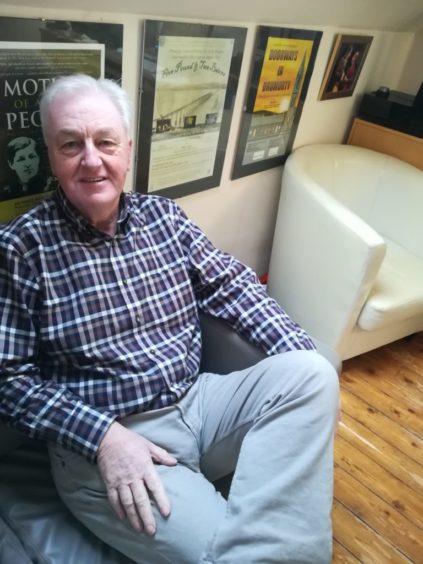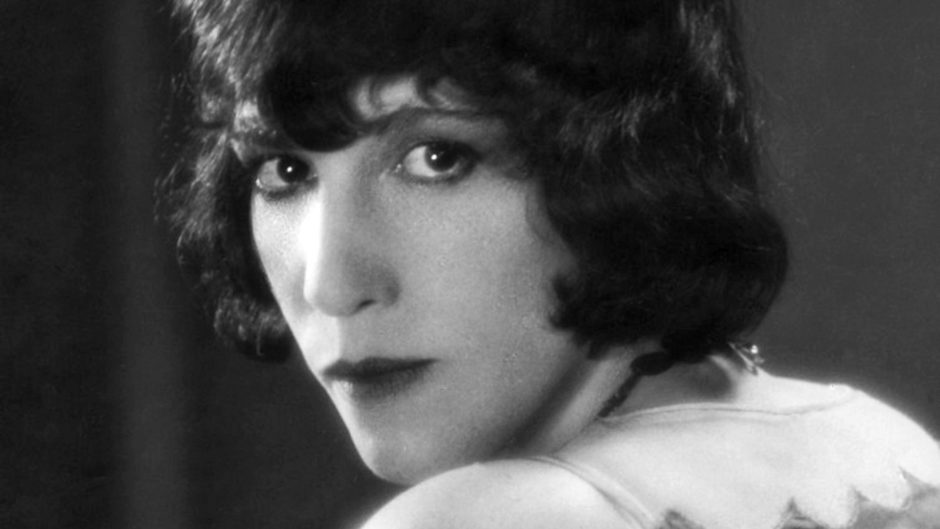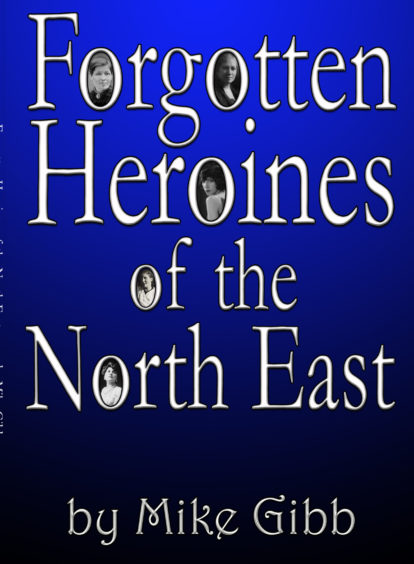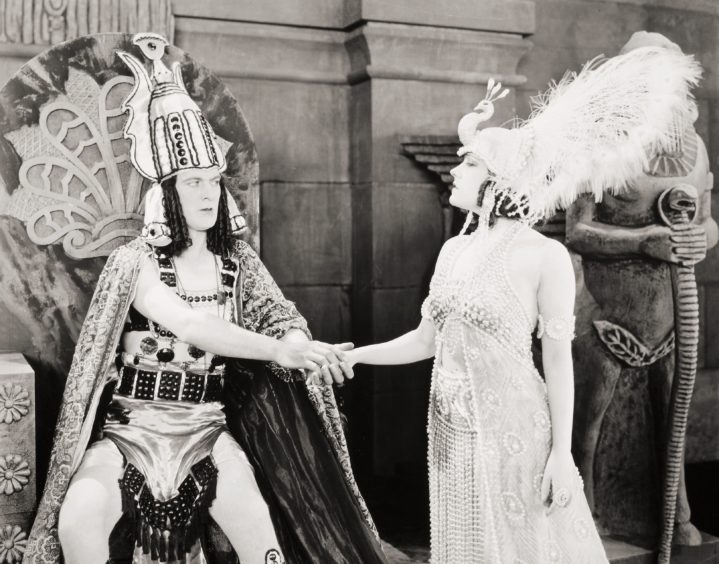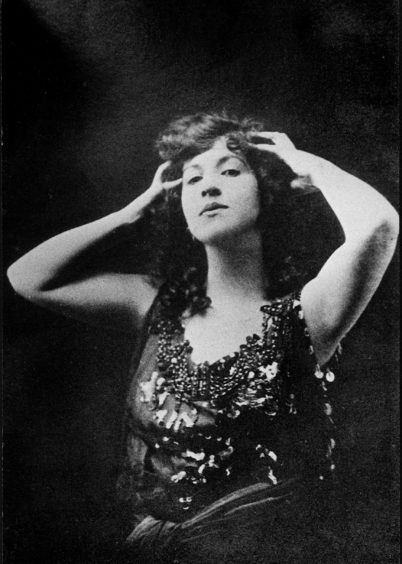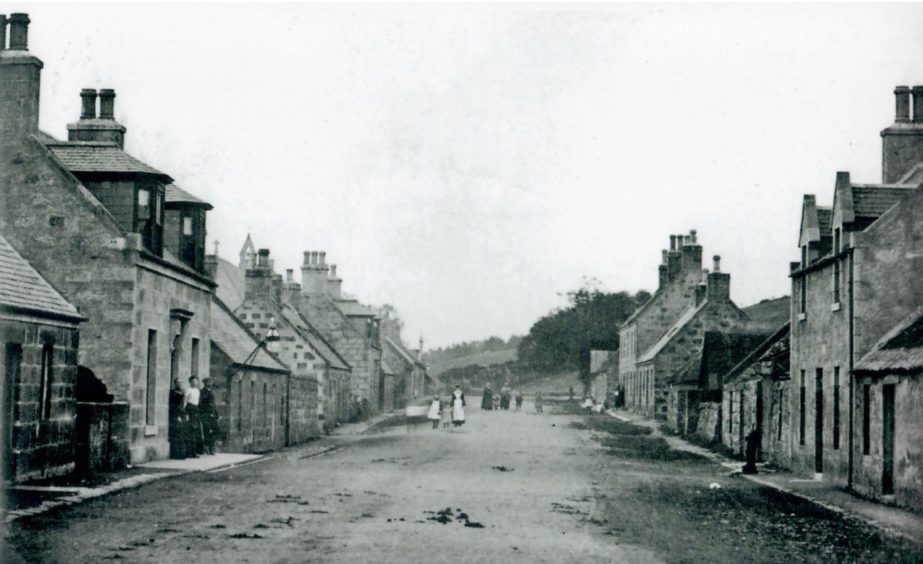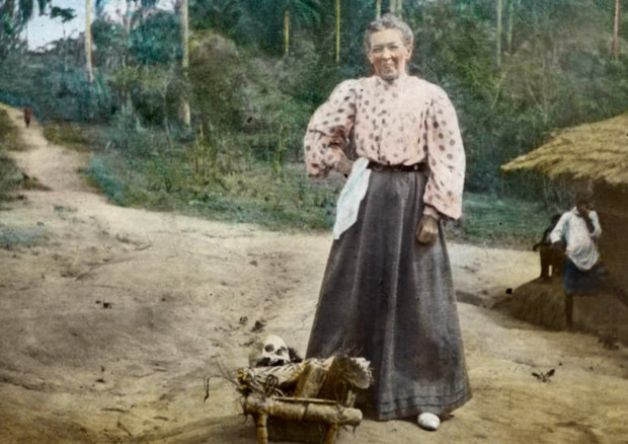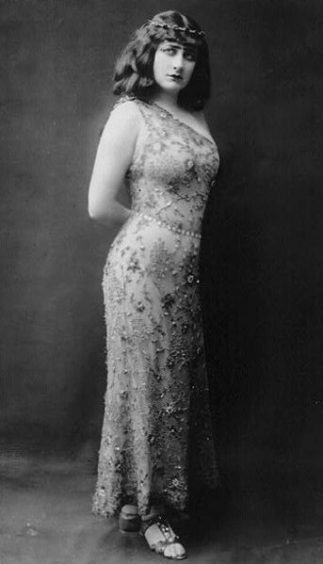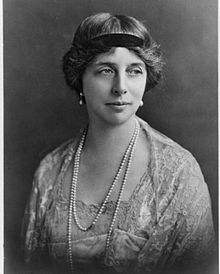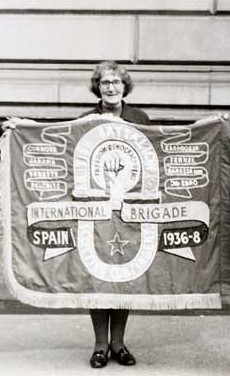One made the journey from the gas lamps of Strichen to the bright lights of Hollywood.
Another became a world-acclaimed opera star and a third travelled from Scotland to help the wounded soldiers of the International Brigade in the Spanish Civil War.
Forgotten heroines
Author and playwright, Mike Gibb, has now chronicled the stories of women from Aberdeen and Aberdenshire in his new book Forgotten Heroines of the North-East.
And his work brings to life the qualities which led to such diverse figures as Lorna Moon joining forces with film mogul Cecil B DeMille and star Greta Garbo; and missionary Mary Slessor’s endeavours in Africa being recorded on a £10 note.
He has also featured Maria Ogilvie Gordon from Monymusk, who was renowned for her scientific work and support for the suffragette movement; Torphins-born Annie Murray’s heroics in fighting fascism in Spain; and Mary Garden’s peripatetic path all the way from the Granite City to the great opera houses across the world.
The work, which has been funded by the Doric Board’s inaugural New Year awards, will be published next month and investigates the fashion in which this bold quintet transformed the circles in which they moved.
Seismic impression
However, none of their career paths was more astonishing than that chosen by Ms Moon, who scandalised her local Aberdeenshire community, yet made a seismic impression in the early days of the film industry.
As a youngster at the start of the 20th century – she was born in 1886 – she emigrated to Canada and then the United States with her husband, Bill Hebditch, but dumped both him and the couple’s five-year-old son, and subsequently became one of the most illustrious figures in the age of silent films.
The little girl who was christened Helen Nora Wilson Low grew up in an Episcopal school in Strichen, where her mother ran a temperance hotel.
From the outset, however, she had a rebellious streak and an aversion to conformity.
As a keen movie-goer, Ms Moon went to see the latest Cecil B DeMille offering, Male and Female, in 1920, but was so unimpressed with the production that she fired off a letter to the director, telling him in no uncertain terms what she thought about the script and subsequently received a call from the great man himself.
Banned in Strichen
Mr Gibb, who has created a play Doorways in Drumorty, adapted from her popular book of the same name – it was banned in Strichen for 50 years because the locals recognised themselves – has no doubt about the artistic merit of his late compatriot.
He said: “I believe that if she hadn’t died so young – in 1930, aged 43 – she would have gone on to become one of Scotland’s great literary figures and would now be revered like Lewis Grassic Gibbon rather than being largely unknown.
“Cecil B DeMille responded to her letter and suggested that if she thought she could do better, then why didn’t she come to Hollywood?
“So she packed her bag, said goodbye to her common law husband, Walter Moon, and headed off to California.
Found a book from the library of Cecil B. DeMille. Lorna Moon was one of the most prolific female screenwriters in early Hollywood. She got started when she contacted DeMille with criticisms of the screenplays of his films. He challenged her to do better… and she did. pic.twitter.com/2DKKefniMi
— Rebecca is celebrating gay wrath month (@arkhamlibrarian) August 17, 2019
“During the Twenties, she became one of the highest-paid female scriptwriters in the industry, responsible for the likes of Mr Wu, Women Love Diamonds and one of early cinema’s biggest hits, Love, which starred the great Garbo.
“She also worked with some of the top stars of the era, including Gloria Swanson, Lon Chaney and Norma Shearer.
“But while her professional life flourished, her personal life was once again in turmoil. She had an affair with William DeMille, a playwright, who was the brother of the famous director and a married man, and she became pregnant.
“Then, fearing a scandal, Cecil quickly sent the baby, a boy named Richard, to an orphanage and it was only after William DeMille died in 1955 that Richard, at the age of 34, was told the man he had known all his life as Uncle Bill was actually his father.”
Dangerous liaisons
Mrs Moon’s creativity was undimmed by these dangerous liaisons. But after penning a series of short stories about the imaginary Scottish village of Drumorty, which was written with strong elements of the Doric dialect from her early days, her revelations about the community in which she grew up sparked consternation in Strichen.
Sadly, even as her star was in the ascendancy, her frenetic life was abruptly curtailed.
Mr Gibb said: “She contracted tuberculosis and moved to a sanatorium in Albuquerque in New Mexico, in the hope that the warm, dry air would help her to recover.
“While she was there, she completed her one and only novel, Dark Star, but although it was published in 1929 and became a best-seller, Lorna never saw the ensuing hit film, Bill and Min, because she died on May 1 1930.
“There was a great outpouring of grief, especially in her adopted America, after her death and it is obvious that she made a big impression on many people.”
“My interest in her is a consequence of thinking about how any women of that era would leave a sleepy little village like Strichen to venture to the other side of the world.
“At that time, most women wouldn’t have dared venture any further than Aberdeen. On top of that, she succeeded in ingratiating herself into the largely male-dominated world of Hollywood script writers and becoming hugely successful while befriending many of the great stars of the day in the process.
“Because of her cavalier approach to her children, she might not be described as a heroine in the traditional sense of the word, but she certainly was a courageous and fascinating character.
“I wrote the Doorways in Drumorty play because I was so enthralled by her book of short stories of the same name, which were filled with beautifully-drawn characters even though the local people in Strichen, on whom they were based, didn’t agree.”
Mary Slessor (1848-1915)
Born in Gilcomston in Aberdeen, Slessor was a Scottish Presbyterian missionary to Nigeria. She learned Efik, the local language, then began teaching and, because of her understanding of the native language and her charismatic personality, gained the trust and acceptance of the locals and was able to spread Christianity while promoting women’s rights and protecting native children.
2015 Mary Slessor's face and where she worked is immortalised on the £10 Clydesdale bank-note#Nigeria #history pic.twitter.com/aqRgJuwQBL
— Nigerian Nostalgia (@NNPtweets) November 3, 2015
Slessor was honoured by Clydesdale Bank for the World Heritage Series and Famous Scots Series and was featured on the back of the company’s £10 note.
In 2015, the discovery of asteroid 4793 Slessor marked the centenary of her death.
Mary Garden (1874-1967)
The singer who was educated at St Margaret’s School for Girls in Aberdeen was described as “the Sarah Bernhardt of opera” and gained an international reputation for her beautiful soprano voice, viewed as one of the greatest in classical music.
She also appeared in two films made by Samuel Goldwyn, worked as a talent scout for MGM and gave regular lectures and recitals after returning to Scotland, in addition to writing a popular autobiography about her far-travelled life.
Maria Ogilvie Gordon (1864-1939)
This eminent Scottish geologist, palaeontologist and politician was the first woman to be awarded a Doctor of Science from the University of London and the first to be given a PhD from the University of Munich.
She was a fervent supporter and campaigner for the rights of women and children and stood for parliament as a Liberal candidate, while backing the suffragette movement.
In 2000, as a means of commemorating her contribution to palaeontology, a new fossilised fern, Gordonopteris Lorigae, found in the Dolomites, was named after her.
Annie Murray (1906-1996)
The daughter of a tenant farmer, and one of eight children, the Scottish nurse began to take an active role in left-wing politics in the 1930s and was one of the first British volunteers to join the Republican movement in the Spanish Civil War in 1936.
She was acclaimed for her commitment to helping people of all backgrounds and never lost her passion for women’s rights. During the Second World War, Ms Murray was put in charge of an air raid station in the Civil Defence of London. She proved a natural in the role and was regarded as a terrific organiser by all those around her.
Forgotten Heroines of the North-East will be published by Hame Press on July 1.
